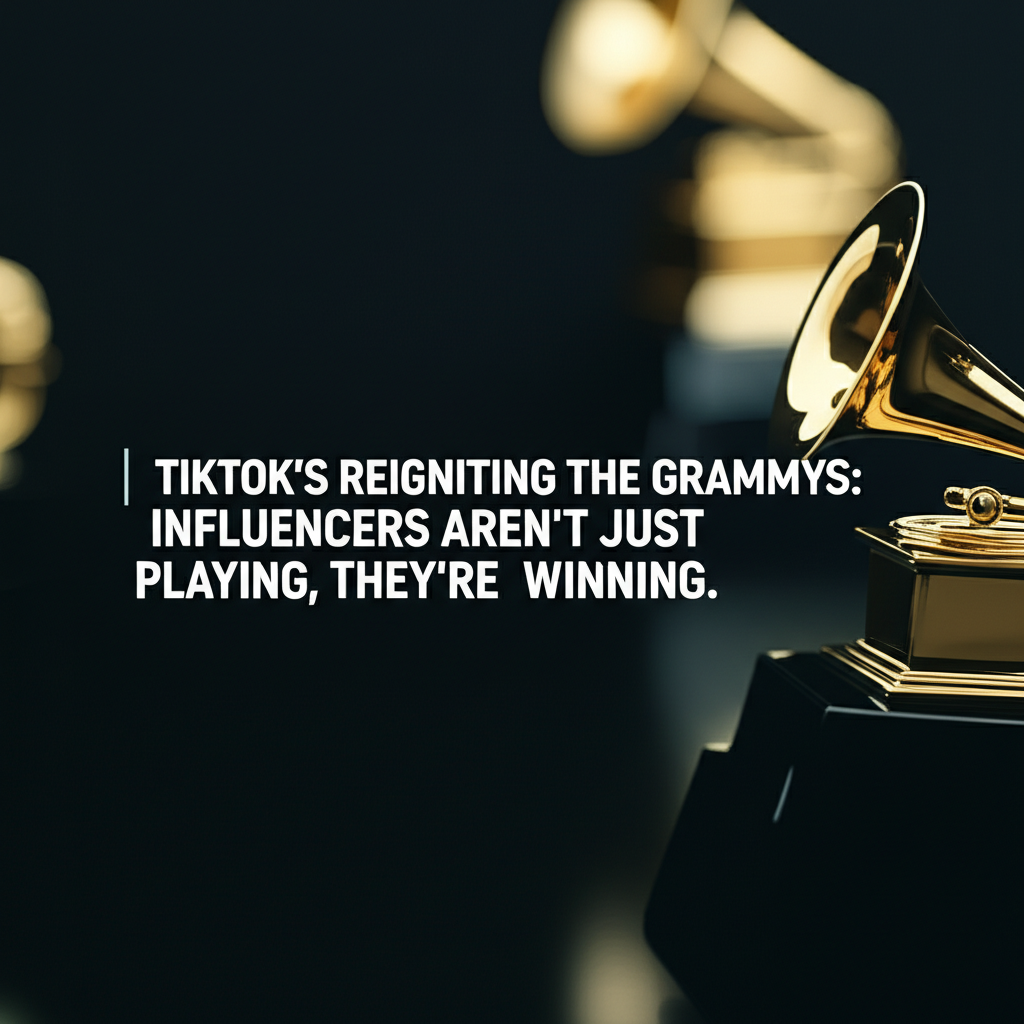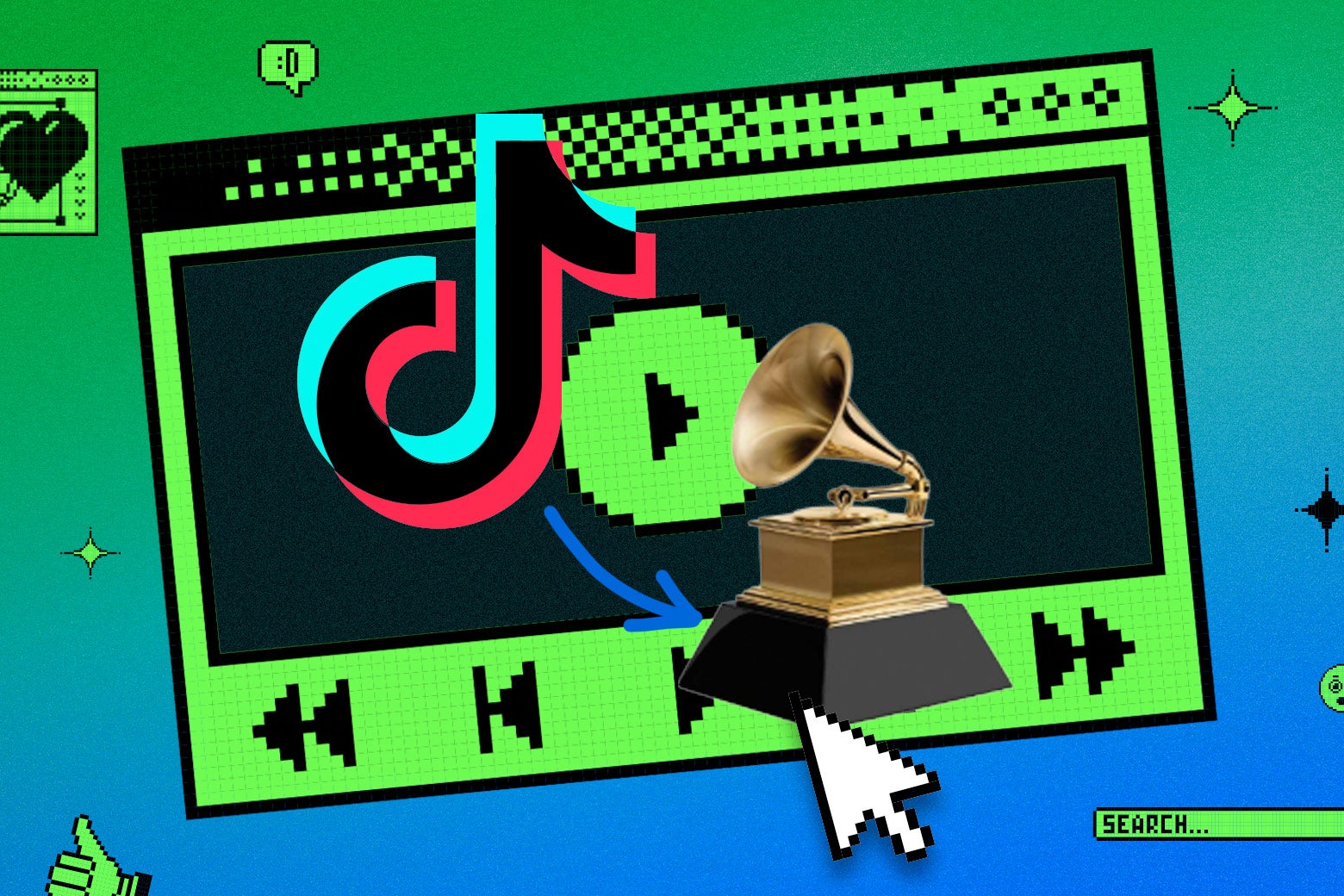The music industry, a bastion often perceived as resistant to rapid cultural shifts, is undergoing a seismic transformation. For decades, the path to legitimate artistry, particularly at the pinnacle of recognition like the Grammy Awards, involved a well-trodden journey through traditional labels, A&R, radio play, and critical gatekeepers. Yet, 2024 heralds a new era, one where the digital-native star isn’t just knocking at the door; they’ve kicked it wide open. The nominations of TikTok sensations Alex Warren and Addison Rae for music’s most prestigious accolades have sent shockwaves, igniting debates, skepticism, and a grudging respect across the globe. This isn’t just a moment; it’s a monumental shift in how we define talent, success, and cultural impact.
For many, the question, ‘Who TF Is Grammy-Nominated Alex Warren?’ wasn’t just a rhetorical musing but a genuine query reflecting a generational and media consumption chasm. Warren, an ‘OG TikTokker,’ built his empire of influence not on traditional musical prowess initially, but on relatable content, viral trends, and a direct line to millions of followers. His transition from short-form video creator to a Grammy-recognized artist embodies the disruptive power of social media platforms. It’s a testament to a new paradigm where audience engagement, direct-to-consumer connection, and viral potential can supersede conventional industry pathways.
Addison Rae: From Lip-Sync to Lush Sounds
Perhaps even more stunning is the trajectory of Addison Rae. Three years ago, the suggestion that she would release ‘one of my favorite albums of the year’ would have been met with derision. Rae, a quintessential social media celebrity famous for ‘miming the lyrics to hit songs,’ was the poster child for the perceived superficiality of influencer culture. Yet, her debut album, ‘Addison,’ has captivated critics and fans alike, earning a Grammy nomination and an unexpected wave of acclaim. Critics have praised its ‘lush, moody, authentic Y2K sincerity,’ a sonic palette that evokes nostalgia while simultaneously feeling fresh and genuine.
“Her ability to pivot from a digital personality to a credible musical artist, crafting an album that resonates with genuine emotion and stylistic integrity, is not merely surprising; it’s a blueprint for a new form of artistic evolution.” – A leading music critic.
Rae’s success isn’t just about a good album; it’s about defying expectations and dismantling preconceived notions. Her journey highlights the potential for sustained artistic development within the creator economy, demonstrating that virality can be a springboard, not merely a destination. This isn’t an overnight fluke; it’s a culmination of strategic artistic direction and a willingness to transcend the boundaries of her initial fame.
The Battle for Authenticity in the Digital Age
The rise of Alex Warren and Addison Rae to Grammy prominence forces a critical examination of ‘authenticity’ in contemporary music. Traditionalists often bemoan the perceived lack of artistic depth in social media-born talent, viewing their success as a triumph of marketing over merit. However, the critical reception of ‘Addison’ challenges this narrative directly. The album’s ‘Y2K sincerity’ is not just a stylistic choice; it’s an assertion of genuine artistic intent, crafted to resonate on an emotional level that transcends the superficiality often associated with TikTok fame.
- The New A&R: Social media platforms are now functioning as informal, massive A&R departments, identifying talent based on organic engagement and viral metrics rather than industry scouting.
- Direct Connection: Artists like Warren and Rae cultivate deeply personal relationships with their audiences, fostering a dedicated fanbase that translates directly into streaming numbers and critical mass.
- Genre Fluidity: The digital landscape encourages artists to experiment and cross genres, unconstrained by traditional radio formats or label expectations.
The conversation around these nominations isn’t just about two individuals; it’s about the very future of the music industry. Are the Grammys, often criticized for being out of touch, simply adapting to a new reality? Or are they inadvertently legitimizing a pathway to fame that bypasses traditional artistic development and expertise?
Redefining Stardom: Beyond the Gatekeepers
The shift is profound. For years, gatekeepers – radio programmers, music critics, label executives – held immense power in determining who would break through. Social media has effectively disintermediated much of that process, empowering artists to build direct relationships with their fans. This democratized access, however, comes with its own set of challenges, including the fleeting nature of viral fame and the constant pressure to produce content.
The nominations of Warren and Rae suggest a profound institutional acceptance of this new order. The Grammys, by extending their highest honor to these artists, are implicitly acknowledging that cultural impact and artistic merit can now emerge from previously unconventional sources. This recognition is not just a nod to streaming numbers; it’s an admission that the artistic landscape has permanently broadened.
“To dismiss these artists as mere ‘influencers’ is to ignore the evolving dynamics of artistic creation and consumption in the 21st century. Their success represents a powerful, undeniable force in popular culture.”
The journey from TikTok dance trends to Grammy gold is fraught with skepticism, but the evidence is compelling. Artists like Alex Warren and Addison Rae are not simply leveraging their existing fame; they are transforming it into something enduring, something critically acclaimed. They represent a generation of artists who understand the intricate dance between digital virality and artistic credibility. Their success isn’t an anomaly; it’s a powerful indicator of where the music world is heading, an undeniable testament to the evolving definition of what it means to be a true artist in the modern era.


